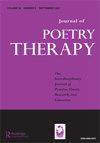Poetics of brittle bone disease: using found poetry to explore childhood bioethics
IF 1
Q3 PSYCHOLOGY, MULTIDISCIPLINARY
引用次数: 1
Abstract
ABSTRACT The gold standard for medical decision-making in pediatrics involves determining the “best interests” of the child and making the decisions accordingly. Accurately assessing the ethical concerns of children can assist care providers, such as parents, clinicians, and other healthcare professionals, in making care and discharge planning relevant to and reflective of what children need to flourish. However, the process of understanding children’s ethical concerns requires care providers to elicit their voices and address their hidden needs and desires into clinical care plans: a practice not commonly operationalized in hospitals. Found poetry was used to consolidate a three-year focused ethnography conducted at a large North American pediatric orthopedic hospital by rearranging interview transcripts into the poetic form. The ethnography demonstrated that children with Osteogenesis Imperfecta (OI or brittle bone disease) have developed complex strategies to navigate medical decision making processes and their communities despite prevailing societal notions of children’s fragility. The poems crystallize children’s rich and nuanced ethical concerns as well as the factors that support or thwart their moral agency within the hospital’s socioecological context. Found poetry thus can allow healthcare practitioners greater ethical insight into children’s needs and facilitate professional reflexivity.脆性骨病的诗学:用发现的诗歌探索童年的生命伦理
儿科医疗决策的黄金标准包括确定儿童的“最佳利益”并据此做出决策。准确地评估儿童的道德问题可以帮助护理提供者,如父母、临床医生和其他医疗保健专业人员,使护理和出院计划与儿童蓬勃发展的需要相关并反映出来。然而,了解儿童的伦理问题的过程要求护理提供者听取他们的声音,并在临床护理计划中解决他们隐藏的需求和愿望:这一做法在医院中通常不实施。在北美一家大型儿科骨科医院进行的一项为期三年的重点人种志研究中,通过将访谈记录重新整理成诗歌的形式,发现了诗歌。人种学表明,患有成骨不全症(OI或脆性骨病)的儿童已经发展出复杂的策略来应对医疗决策过程和他们的社区,尽管社会普遍认为儿童是脆弱的。这些诗明确了孩子们丰富而微妙的伦理问题,以及在医院的社会生态背景下支持或阻碍他们道德行为的因素。因此,发现诗歌可以让医疗从业者对儿童的需求有更大的道德洞察力,并促进专业反思。
本文章由计算机程序翻译,如有差异,请以英文原文为准。
求助全文
约1分钟内获得全文
求助全文

 求助内容:
求助内容: 应助结果提醒方式:
应助结果提醒方式:


